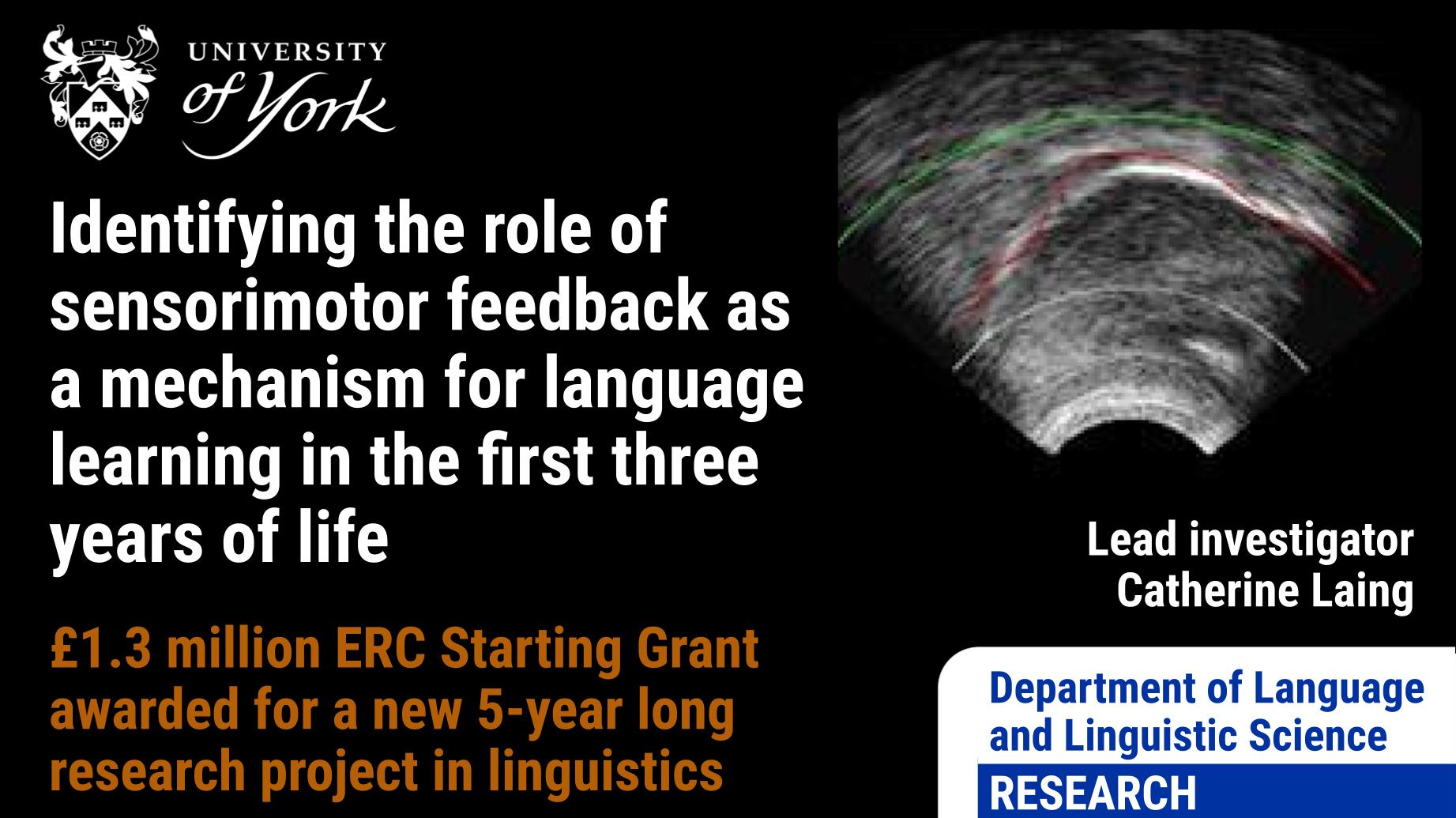Project: Identifying the role of sensorimotor feedback as a mechanism for language learning in the first three years of life
Posted on 29 November 2022

The Department of Language and Linguistic Science is delighted to announce that Dr Catherine Laing has been awarded a 5-year ERC Starting Grant for the project “Identifying the role of sensorimotor feedback as a mechanism for language learning in the first three years of life (SENFM)”, with an award value of £1.3 million. Alongside Dr Laing (project-lead), a post-doctoral researcher and a lab manager will also be working on the project.
Identifying the role of sensorimotor feedback as a mechanism for language learning in the first three years of life (SENFM)
The first three years of language development are vital to a child’s overall life chances. By the third year, vocabulary size predicts later academic success, and has long-term implications for physical and mental wellbeing and career success. A large body of research has linked this to sociodemographic factors, whereby children growing up in lower-income homes (low socioeconomic status, SES) have heard roughly 30 million fewer words than their higher-SES peers by the time they reach school age. This ‘word gap’ is one of the key challenges in developmental research, and new approaches are required to tackle it. This proposal will address this challenge by advancing knowledge on vocal development in the first year of life, to understand how this may serve as a ‘missing link’ between the language a child hears in the home and their vocabulary by school-age. It raises the crucial question: how and why does very early language exposure have an effect on later vocabulary?
“I'm delighted to have been awarded this funding as it will allow us to address some exciting questions about how babies learn from their language environment, and how they do it so quickly. Ultrasound will allow us to look at infants' vocal development in a way that hasn't been done before, and could have really important cross-disciplinary implications.” - Dr Catherine Laing, Department of Language and Linguistic Science
